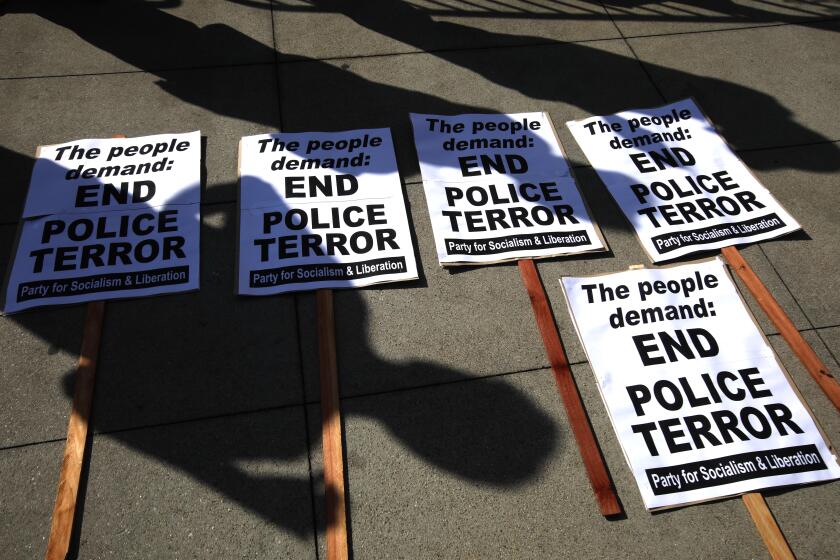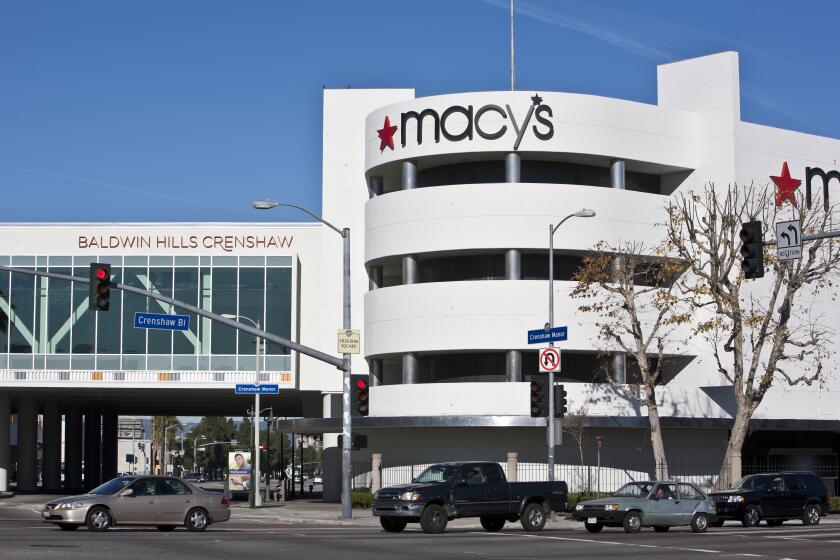Opinion: Why El Segundo, home of the 2023 Little League World Series champs, has winning ways

- Share via
First things first: big congratulations to the El Segundo All-Stars on winning the Little League World Series on Sunday.
It feels like my win too, as I’m sure it does for other Los Angeles natives and lifers who, like me, are also baseball aficionados. I’m sure the win resonates for those who’ve never even been to El Segundo because we’re all a part of the loose federation called Greater L.A. For all its geographic separateness, the federation coheres at moments like this. El Segundo is us.
Beyond that, the All-Stars’ victory is personal for me. I don’t live in El Segundo, but I know it better than most. It’s not a stretch to say that I know it better than many of its roughly 16,000 residents.
Louis Lappe hit a walk-off home run in the sixth inning to power El Segundo to a 6-5 win over Curaçao in the Little League World Series championship game.
I’ve been in all its corners. I’m intimately familiar with its streets and businesses, all its neighborhoods and their rhythms. I know who’s moved out and who’s moving in, what houses have been razed to make way for new, grander (but, in my opinion, less personable) ones. I know the baseball fields within the parks where the Little Leaguers honed their skills, one of many daily-life happenings around town I’ve observed with great interest. In short, El Seg feels like home.
But it isn’t home. I don’t live far — Inglewood, another small L.A. city, 15 minutes away, a straight shot east down Imperial Highway. For the last 10 years or so, I’ve been driving to El Segundo several times a week to walk my dogs — I used to have four, now I have five. It’s cooler there, something my shaggier dogs appreciate, especially the aging Siberian husky.
I like El Segundo’s small-town insularity, the sense of being cut off from the chaos that often defines Greater L.A., and that makes it ideal for walking. The quiet is a respite, something I look forward to. Very pricey real estate is characteristic of all the beach cities, but quiet is what says luxury to me in El Segundo.
As El Segundo wins with a walk-off home run, hundreds of fans in the Southern California city celebrate the Little League team’s victory.
The uneventfulness is in stark contrast to the almost frantic activity going on in Inglewood, which is being remade — not exactly by the people’s choice — into a haven for concerts, sports and entertainment. Inglewood has struggled with a reputation of underachievement, so the redevelopment looks like great progress. But in terms of quality of life for the residents, I can tell you it is not. In the midst of Inglewood’s aggressive change, El Segundo is a great escape.
Ironic, considering that El Seg is typical of the many Greater L.A. places that were long hostile, and often violent toward, any Black presence, even a casual one — especially a casual one. Just walking around in certain areas was risky. My father, who moved to L.A. in the early 1940s, said Black people spending time in once-very-white South Bay burgs like Compton and Inglewood was rare, not to mention unadvisable, and spending time in places further west was off the radar completely.
I’ve had my own run-ins with this history — followed by police in El Segundo, and once stopped by a beat cop who told me that walking four dogs at a time was against state law (read: don’t come back here again).
I braced for the worst when my late husband and I got pulled over for expired tags on Imperial one day. Alan, who was white, was driving. We were in a fairly old car, and those suspect dogs were crowded in the backseat. But after glancing at Alan’s license, the officer just offered him some friendly advice to take care of the registration soon — not even a ticket! “Have a nice day,” he said.
Endemic racism, nurtured by white people, is the culprit in Memphis, but that doesn’t alleviate the anguish of seeing Black officers devalue their own without remorse.
It would have been comedic if it hadn’t been such a striking confirmation of who is viewed as truly belonging in El Segundo, and who isn’t. Who is entitled to the luxury of uneventfulness, and who isn’t.
None of this has deterred me from making El Seg my place. Not just for the well-being of my dogs, but also for the larger cause of justice, for the right to go where I wish.
And for the quiet. I know “quiet” is loaded — a synonym for normalcy, or what we idealize as normal. I know I’m treading a thin line here. We equate white with normal, Black and colored with its opposite. For me to seek out “normalcy” could be seen as rejecting my chiefly Black neighborhood, deeming it abnormal, irredeemably chaotic.
It’s not just another department store dying off. For many, the Baldwin Hills store had as much to do with identity as it did with shopping.
Yet I’ve never wanted to live in El Segundo. Inglewood for me is unequivocally home; El Seg is just an extension of its best traits, a realization of its greatest possibilities. Racial history and economics notwithstanding, I see El Segundo as having much in common with Inglewood — a burgeoning creative class, parks with exceptional baseball diamonds. Of course, I walk my dogs in Inglewood too.
After a decade, I’ve become a common enough sight in this neighboring city that the people I see wave at me or smile and nod when I walk by with my pack. Some remark on the weather, or the dogs (five dogs walking really is a happening unto itself). I’m familiar, and that’s progress. Tellingly, no one has ever asked me where I live.
When I walk there next — today, tomorrow — I’m going to say to whoever speaks to me, “How about those All-Stars?” Whatever the response, I’ll be making it official: We’re all locals, living in the same place.
Erin Aubry Kaplan is a contributing writer to Opinion.
More to Read
A cure for the common opinion
Get thought-provoking perspectives with our weekly newsletter.
You may occasionally receive promotional content from the Los Angeles Times.














